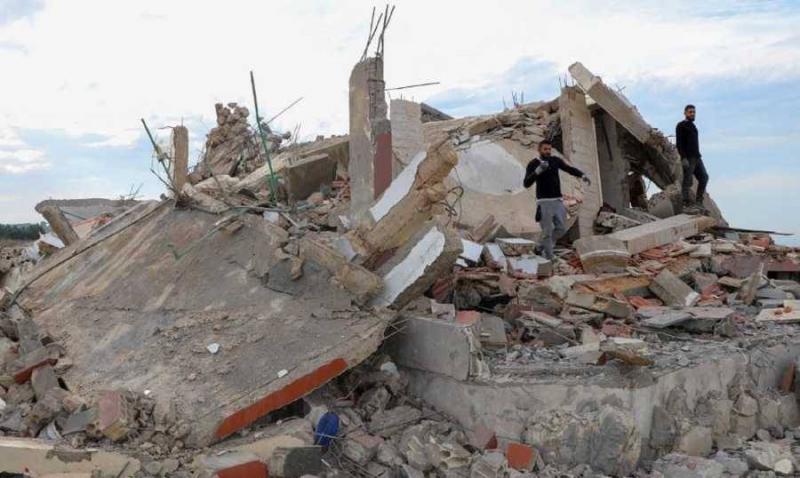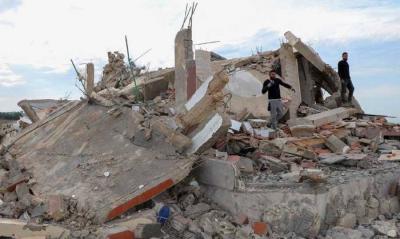A former ministerial source confirmed to "Al-Anbaa" that the presidential election is entrapped by three dilemmas, two of which are directly related to the war in Gaza:
1. First, the opposition's inability to select a real consensus candidate that satisfies everyone, and second, its failure to enforce the constitutional path for electing a president.
2. The unwillingness of Hezbollah to elect a president before the war in Gaza and the south ends, as it seeks to impose its conditions and demands political gains as a victor in the war. This is evident from the refusal of Speaker of the Parliament Nabih Berri to the proposal by the Lebanese Forces Party to hold dialogue without the opposition, despite the latter's insistence on the necessity of its participation in the presidential election session following the seven-party dialogue. This means, from the source's perspective, that President Berri uses the Lebanese Forces' rejection of dialogue as a justification for not calling a presidential election session.
3. There is no green light from the West, specifically from the United States, before understanding what Iran demands as a price for restoring stability to the region.
The source stated that the war on Gaza has imposed its implications not only on the presidential election in Lebanon but also on every critical issue and detail in the country. This spans from the negative report by Total on the gas exploration in Block 9, through the implementation of UN Resolution 1701, to the preliminary demarcation of land borders before the presidential election. Everyone in Lebanon, from the opposition to the resistance and those in between, is playing for time while waiting for clarity regarding the situation in Gaza. The Secretary-General of Hezbollah, Sayyed Hassan Nasrallah's assertion that the presidential election is separate from the war in Gaza, is nothing more than a stance rooted in political consumption, nothing else.
The source added: This is the Lebanese reality amid the war on Gaza and in southern Lebanon, and consequently, there will be no presidential elections in Lebanon unless an extraordinary event occurs before the presidential elections in the United States. This is evidenced by the fact that all external initiatives and efforts have cooled down, as their leaders are certain that the situation in Lebanon is resistant to solutions. From the French initiative to the efforts of the quintet committee and the Arab mediations, accompanied by extensive foreign interventions, all were attempts characterized by determination and seriousness, yet they could not penetrate the wall of presidential vacancy due to the repercussions of the war in Gaza.
The source continued: President Berri is experiencing the best political days of his career, as he is the primary responsible figure in the country amid the absence of the head of state and a caretaker government headed by Najib Mikati, and this could continue until the 2026 date for the parliamentary elections, which is expected to face an extension of the current council's term. This means we are facing a long-term status quo.
In a separate context about his reading of the Army Chief of Staff crisis as the extended term of Major General Joseph Aoun nears its end, the source confirmed that discussions are currently underway to find a formula that leads to legislative approval for the appointment of Major General Hassan Aouda as Chief of Staff of the army. This could be in exchange for him either taking military command alongside the military council with all its members (a weak possibility), or extending Aoun's term by another year along with extending the retirement age for all officers from lieutenant to general (also a weak possibility), or convening the Cabinet with a two-thirds majority to appoint a new army commander, leaving the decision to retain or dismiss them up to the elected president. This last possibility is the most logical. It should be noted that in all three scenarios, one fact remains: from the presidency to the governorship of the Central Bank to the army command, only the Maronite positions are subject to contention and prone to falling into severe crises, according to "Al-Anbaa" newspaper.




